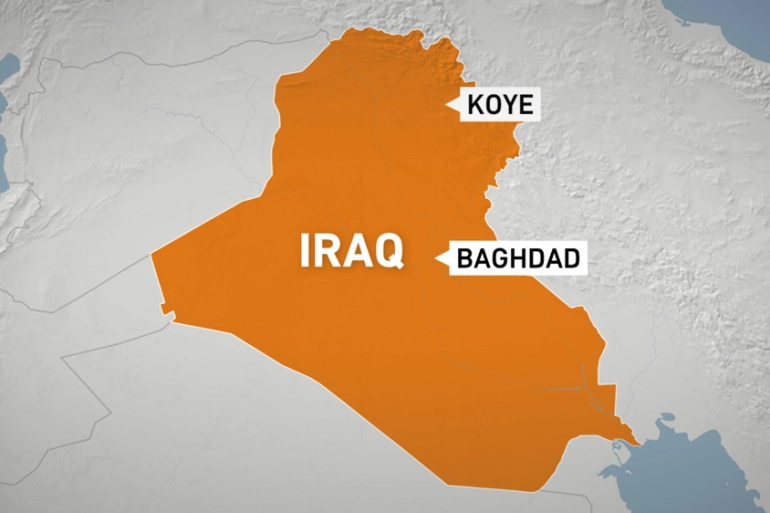Iran’s Revolutionary Guard Corps says the attack targeted ‘terrorist’ groups in the Kurdish region of northern Iraq.
At least one person has been killed after rockets fired by Iran hit the headquarters of an Iranian Kurdish party in the Iraqi city of Koye, near Erbil, the capital of the autonomous Kurdish region of northern Iraq.
The attack on Monday also injured 10 others, according to the mayor of Koye, Tariq Haidari.
Iran’s semi-official Fars News Agency announced that the Islamic Revolutionary Guard Corps (IRGC) had been behind the attack, which it said targeted “terrorist groups” with missiles and drones.
Mohammad Pakpour, the commander of IRGC ground forces that carried Monday’s strikes, told Fars that the attack came after repeated warnings to officials in northern Iraq and the country’s central government that “secessionist” groups based in the region needed to be leave or be disarmed.
“It has now been about 50 days [since the first strikes] and unfortunately no actionable efforts have been done. Moreover, the terrorists have since evacuated the bases that were damaged or destroyed and have situated themselves among the civilian populations,” he said.
Pakpour suggested the attacks would carry on if Kurdish groups based in the region continued to pose a threat to Iran.
According to Kurdish security sources, drones targeted two bases for Iranian Kurdish dissidents near Erbil and Sulaimaniyah.
An Iranian Kurdish rights group said on Twitter that the IRGC targeted the Komala Party’s base in Sulaimaniyah with six drones and the Democratic Party of Iranian Kurdistan’s base in Koye with four missiles.
The IRGC has launched attacks on Iranian Kurdish militant opposition bases in the Kurdish region of northern Iraq since the death of Iranian Kurdish woman Mahsa Amini on September 16.
Amini’s death, which occurred after she had been detained by Iran’s so-called morality police, has led to weeks of protests.
Iran has accused Kurdish militants in northern Iraq of fomenting the unrest which has gripped the country.
In September, the IRGC issued a statement saying such operations would continue as long as the bases of “terrorist groups” were not removed and as long as regional authorities “do not act according to their commitments”.









